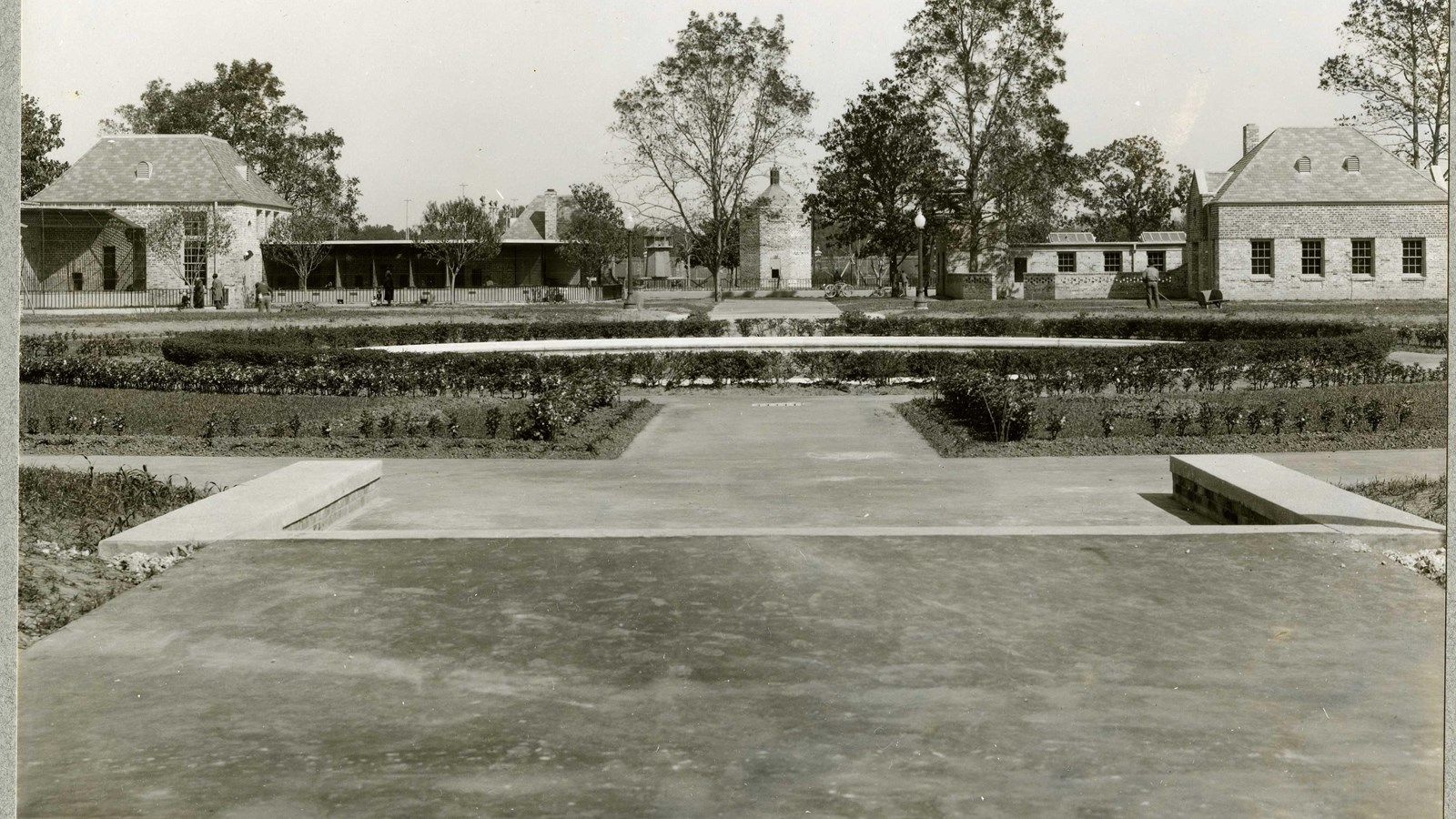Last updated: May 24, 2024
Place
Audubon Park

Olmsted Archives, Job #02001, New Orleans, LA
Quick Facts
In 1898, John Charles Olmsted undertook his first solo project for his family’s firm, the design of Audubon Park. Olmsted was tasked to transform the swampy, divided flatland into greenspace. Olmsted’s preliminary plan conformed to the topography, grading and drainage of the site.
Like his father, Olmsted ensured any architecture in the park wouldn’t dominate, and expressed the idea that any structures in the park be built to conform to the history and traditions of the city. Work on Audubon park echoed the earlier work done at the Back Bay Fens: unifying a site and solving drainage problems by developing a varied watercourse.
In the northern section of Audubon Park, Olmsted used fill from the stream bed to grade the flat site into a rolling meadow, which became part of a golf course. Olmsted also included numerous picnic shelters and diverse plantings along the stream banks and curving paths.
Today, the 340-acres of Audubon Park follows much of Olmsted’s plan, though his planting recommendations were not implemented. A zoo was developed in the 1930s, with design advice from Olmsted Brothers.
Source: "Audubon Park," The Cultural Landscape Foundation
For more information and primary resources, please visit:
Olmsted Research Guide Online
Olmsted Archives on Flickr
Like his father, Olmsted ensured any architecture in the park wouldn’t dominate, and expressed the idea that any structures in the park be built to conform to the history and traditions of the city. Work on Audubon park echoed the earlier work done at the Back Bay Fens: unifying a site and solving drainage problems by developing a varied watercourse.
In the northern section of Audubon Park, Olmsted used fill from the stream bed to grade the flat site into a rolling meadow, which became part of a golf course. Olmsted also included numerous picnic shelters and diverse plantings along the stream banks and curving paths.
Today, the 340-acres of Audubon Park follows much of Olmsted’s plan, though his planting recommendations were not implemented. A zoo was developed in the 1930s, with design advice from Olmsted Brothers.
Source: "Audubon Park," The Cultural Landscape Foundation
For more information and primary resources, please visit:
Olmsted Research Guide Online
Olmsted Archives on Flickr
